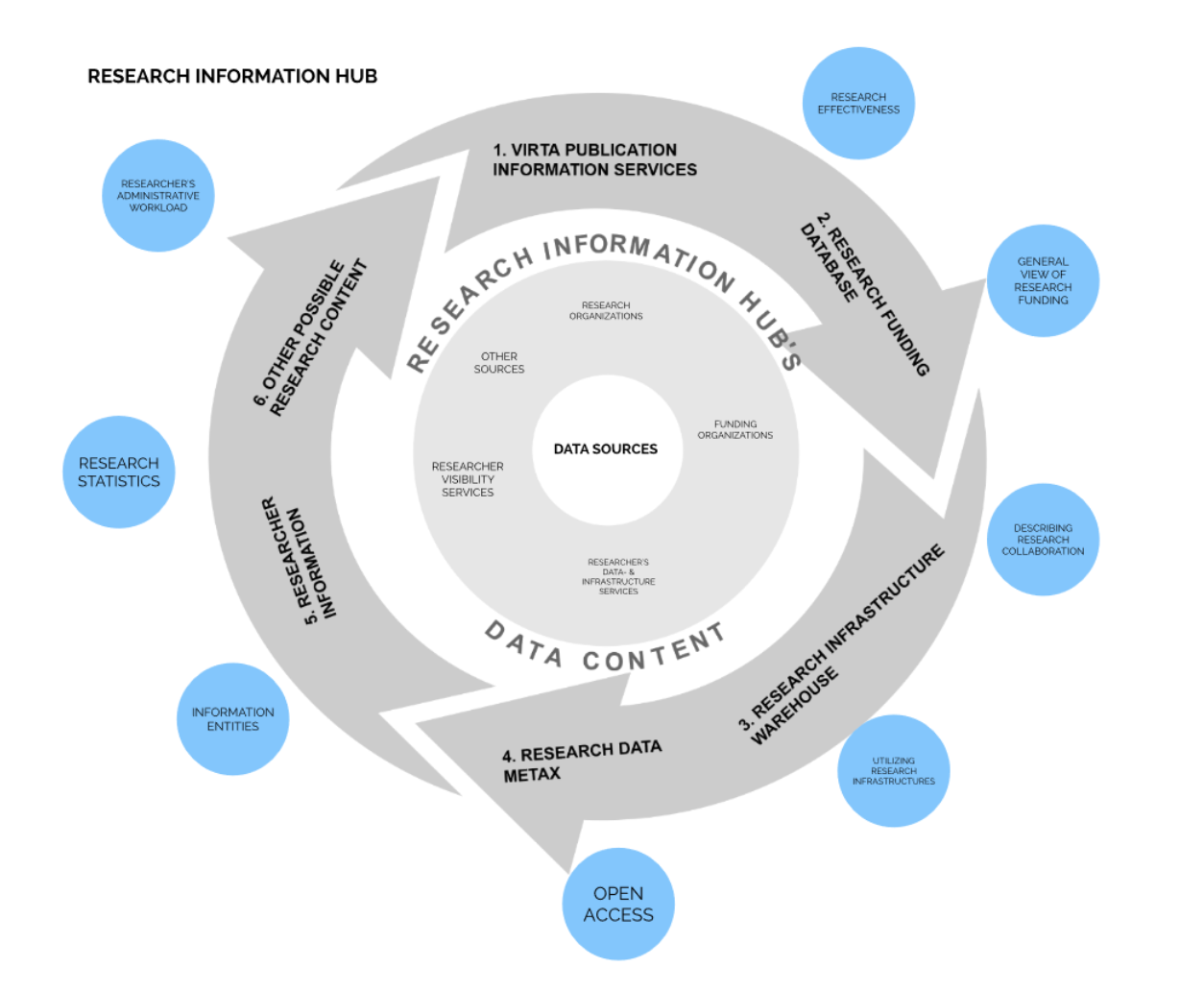Using research information will become easier in the future with the introduction of a new research information hub. The Ministry of Education and Culture (MINEDU) has authorised CSC to implement and coordinate a national service, which compiles metadata on, for example, publications, research data, research infrastructures, researchers, projects and research groups.
In just a few years, information that can be easily and openly accessed from a single source will provide a comprehensive picture of the research being conducted in Finland.
"The administrative workload will be lightened when existing information become more accessible and easier to find. This will also enhance the impact of research," says Counsellor of Education Erja Heikkinen of the Ministry of Education and Culture.
"Properly executed, the research information hub will offer an outstanding opportunity to, for example, observe how different research infrastructures are used in research across disciplines and between them, without increasing the reporting load for researchers," explains Pekka Lehtovuori, Director, Services for Research at CSC.
The amount of different research output is increasing along with the advent of a digitalisation and open science. Research metadata is used in research work and its attendant administration, such as funding applications and reporting, information retrieval, publishing and the compilation of statistics.
At present, data is stored in numerous information systems. The goal of the research information hub is to enhance the usage of existing data. When procedures are standardised and automated, administrative work is made easier. The goal is that we will no longer be required to enter the same data into several different systems.
Everyone benefits from the Research Information Hub
The new service will benefit researchers, research organisations, funders and parties making decisions based on information. For example, management and evaluation of research in organisations will have consistent, up-to-date data at their disposal. Researchers will be able to use their own data more flexibly in different services. Different research output can also be more effectively interlinked, and the transfer of data between organisations will be made easier.
Funders will also gain greater exposure for the research they are funding, and research output will be more accessible to citizens and the media using it.
Executive and steering groups to oversee development of the Research Information Hub
The MINEDU has appointed executive and steering groups to oversee development of research information flows and the research information hub during the period 2017-2020. The executive group will, among other things, decide on a developmental path for the service, consider approaches to lightening the workload for researchers and administration, and identify the information needs of research administration. It will also promote cooperation between actors.
The steering group oversees development of the service and coordinates national cooperation. The group works in cooperation with the Network of Research Services and Administration (TUHA).
In the executive group, CSC is represented by Director Antti Mäki and Development Manager Hanna-Mari Puuska, who is also a member of the steering group.
"There is already an enormous amount of information being collected on research, but the fragmentation of discrete systems compromises our ability to take advantage of this information. The information hub offers countless new uses for data already in place," explains Puuska.
